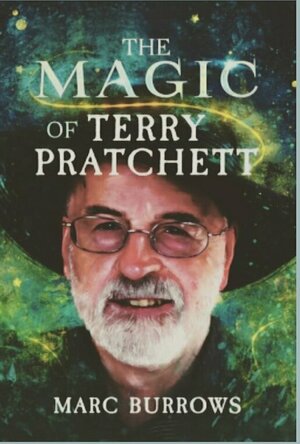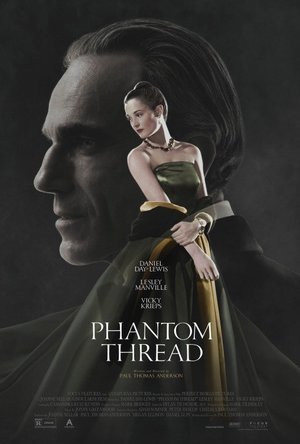
iTablaPro - Tabla Tanpura Player
Music and Lifestyle
App
Come sit down for a session with our Tabla Pro. Experience virtuoso, realistic tabla playing, and...

Tala Keeper
Music and Education
App
Tala Keeper is a versatile visual programmable metronome designed to help internalize the flow of...

Discovr - discover music
Music and Entertainment
App
Explore the world of music with Discovr * No. 1 music app in 50+ countries (US, UK, AU and more) *...

Vocal Warm Up by Musicopoulos
Music and Education
App
The secret of all successful singers is daily Vocal Warm Ups. Whether you’re a pop star, rock...

Xtend Fm Radio
Music and Entertainment
App
Internet Radio Player/Tuner with instant channel swapping! • Classic Radio Interface for ease of...
Lottie disney bookworm (1056 KP) rated The Magic of Terry Pratchett in Books
May 27, 2020
As a 32 year old female, mother and accountant you may be forgiven for expecting my book reviews to be based around chick-lit or classical novels and, although it is the case that I own several very well-read copies of Pride & Prejudice, I am wholly a child of the sci-fi/fantasy genre. Terry Pratchett novels sit alongside George RR Martin, Terry Brooks, David Eddings and Ursula Le Guin in my house; I owned and loved Discworld computer games and probably know every word to the film Labyrinth.
It could therefore be said that I would find Marc Burrow’s biography fascinating regardless: however, I am ashamed to say that, before reading this book, I knew very little about the life of the author whose books I admire so much.
Burrows structures his writing predictably enough, running through the life of Terry Pratchett chronologically, from his working-class upbringing; his career in journalism; the progression in popularity of his novels; his knighthood all the way up to his untimely death from Alzheimer’s. However, this is where an affiliation to any standard biography ends.
It is immediately apparent that Marc Burrows is an avid Terry Pratchett fan, even without reading his foreword, due to the inclusion of footnotes: a writing style which is synonymous with Pratchett. This allows Burrows, as it did with Pratchett, to provide little notes and details which cannot be in the main text without limiting the reading experience. It also allows both authors to inject a large amount of humour into their writing.
It should also be mentioned that no book has gripped me from the introduction in a long time, although I am fairly sure no other book would use the word “crotch” before we even reach Chapter One!
‘The Magic of Terry Pratchett’ is a clever, well-informed biography which perfectly encompasses the humour of the Discworld creator whilst educating the reader of his journey to becoming the icon that he is today. I have no doubt that this has been a labour of love for Marc Burrows: when the kindle says you have 20 minutes reading time left and you have reached the bibliography, you know that a whole lot of research has been done!
Sir Terry also had the tendency to embellish his stories and this is a factor Burrows does not try to hide; highlighting when facts don't quite add up and almost analysing the situation to try and discern the truth. This was such a refreshing approach to a biography: the wool is not pulled over the eyes of the reader, nor the subject blindly believed for convenience.
It is important to note that this book transgresses the existence of Discworld and “the business with the elephant” and encompasses all of Sir Terry’s work: from short stories in the local paper to his TV documentary on assisted death.
The reader will also learn of the involvement of Rhianna Pratchett in her father’s work and discover that the “man in the hat” was not always the easiest man to work with.
I am going to need at least 3 copies upon release- can we preorder?

SoundCloud - Music & Audio
Music and Social Networking
App
SoundCloud is the world's largest music and audio streaming platform – 150 million tracks and...

Gypsy Jazz Guitar Secrets Magazine - Learn To Play Guitar Like Django Reinhardt
Music and Magazines & Newspapers
App
*WHAT PEOPLE THINK* 5-Stars: "If you play guitar, it's practically a crime not to check this out!...

Fiete Puzzle - Kids Games with Animals
Education and Games
App
The game Fiete Puzzle lets children discover cute animated animals in beautiful picture book...
Bob Mann (459 KP) rated Phantom Thread (2017) in Movies
Sep 29, 2021
Reynolds Woodcock is the craftsman behind a world-renowned 1950’s fashion house, in demand from the elite classes and even royalty. He has a magnetic personality, is overtly self-confident, obsessive, a cruel bully and treats his girlfriends as chattels that he can tire of and dismiss from his life without a backward glance. Trying to keep the business and Reynolds on track, with ruthless efficiency, is his sister Cyril (Leslie Manville, “Maleficent“).
Looking for his next conquest during a trip to his seaside residence, he reels in blushing young waitress Alma (Vicky Krieps, “The Colony”). But he gets more than he bargains for.
This is a really exquisite and gentle film. Aside from some dubious fungi-related practices, there is no violence, no sex and – aside from about half a dozen well-chosen F-words – limited swearing (of which more below). This is a study of the developing relationship between the two protagonists, with little in the way of plot. Sounds dull? Far from it. This is two hours that flew by.
What it also features is (yet) another example of extremely strong women asserting their power. A scene (well trailed in Manville’s award snippets) where Cyril firmly puts Reynolds back in his box is brilliant: a real turning of tables with Woodcock meekly falling into line. And Alma makes for an incredibly rich and complicated character, one of the most interesting female roles I’ve seen this year so far.
It’s a stellar acting performance from Day-Lewis, and while Oldman fully deserves all of his award kudos for “Darkest Hour”, Day-Lewis delivers the goods without any of the make-up. It feels like Day-Lewis is a long way down the betting odds this year because “he always gets one”. He certainly gets my vote ahead of all of the other three nominees.
Kreips – not an actress I know – also brilliantly holds her own, and if it wasn’t such a strong female field this year she could well have been nominated.
Also worthy of note is the pervasive piano score by (suprisingly) Radiohead’s Jonny Greenwood. It’s really lovely and counterpoints the rest of the classical score nicely. Its BAFTA and Oscar nominations are both well deserved (though I would expect the Oscar to follow the BAFTA steer with “The Shape of Water“).
All in all, this is a real tour de force by writer/director Paul Thomas Anderson (“Inherent Vice”, “There Will Be Blood”). How much I enjoyed this film was a surprise to me, since I have no interest in the “fashion industry” (as my family will no doubt be quick to point out!) and I went to see this more out of ‘duty’ based on its Oscar buzz than because I really wanted to see it.
The big curiosity is why exactly the BBFC decided that this film was worthy of a 15 certificate rather than a 12A. Their comments on the film say “There is strong language (‘f**k’), as well as milder terms including ‘bloody’ and ‘hell’. Other issues include mild sex references and scenes of emotional upset. In one scene, a woman’s nipples are visible through her slip while she is measured for a dress.” For a 12A, the board say “The use of strong language (for example, ‘f***’) must be infrequent”. I didn’t count the f-words… but as I said I don’t think it amounts to more than a half-dozen. Is that “frequent”? And – SHOCK, HORROR… visible covered nipples you say?! Lock up your teenagers! When you look at the gentleness of this film versus the violence within “Black Panther”, you have to question this disparity.

